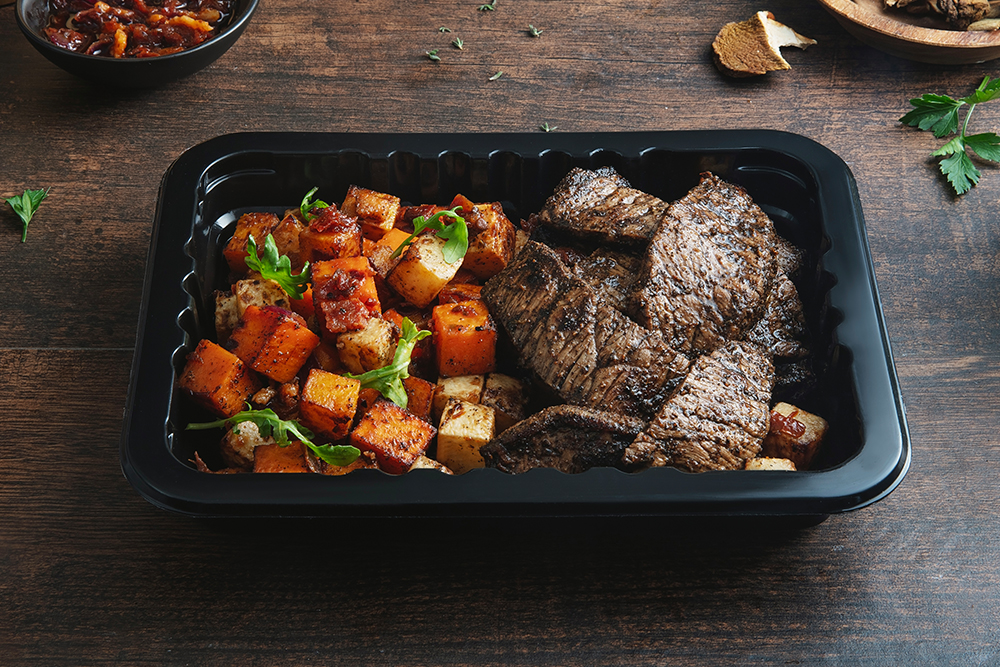ARTICLE AT A GLANCE
The words “food as fuel” may bring to mind an athlete training for an intense competition. But the truth is each of us already uses food to power our lives each and every day – whether we realize it or not.
People of all backgrounds, lifestyles, and dietary needs can benefit from treating food as the fuel for their daily activity and training. It can help them experience improvements they can see and feel. And best of all, it makes the process of choosing what to eat each day easier to navigate. Here’s where to start.
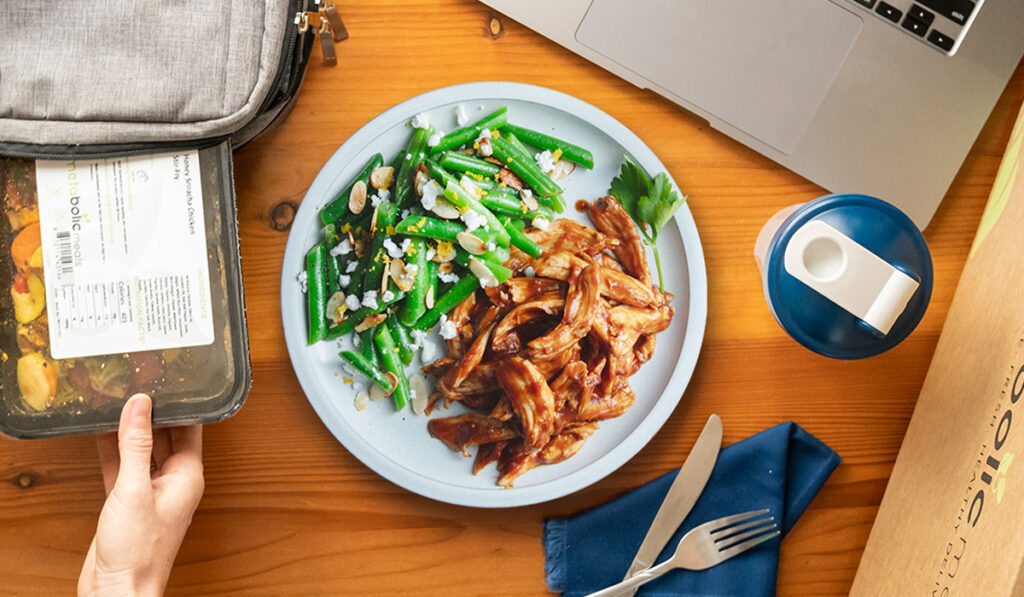
Do you find that you struggle to find enough energy for what you need to get done? Or maybe you’re not able to progress consistently toward your health or body goals. If so, it’s time to take a hard look at the fuel you’ve been putting in your tank.
Embracing a “food as fuel” mindset can mean enjoying both what you eat, and the way it makes you feel. And the perks that come from this approach can be experienced by everyone, regardless of their age, body type, and activity level.
Here’s what we mean when we say “food is fuel,” and how you can put this radical idea into action.
Food as Fuel Means Making Proactive Choices
Often, how we eat is tied to something that happened in the past. “I ate this way, therefore I need to work out.” Or, “I did this, and now I get to reward myself by eating that.”
The downside to this mindset is that it quickly leads down a slippery slope of either punishing yourself for the choices you made, or cutting loose and feeling awful later. Neither is ideal for long-term health or performance.
Here’s what is: actively choosing foods that you know will provide you with lasting energy ahead of time, rather than making reactive responses. In other words, filling up your tank with quality fuel before you realize you’re running low.
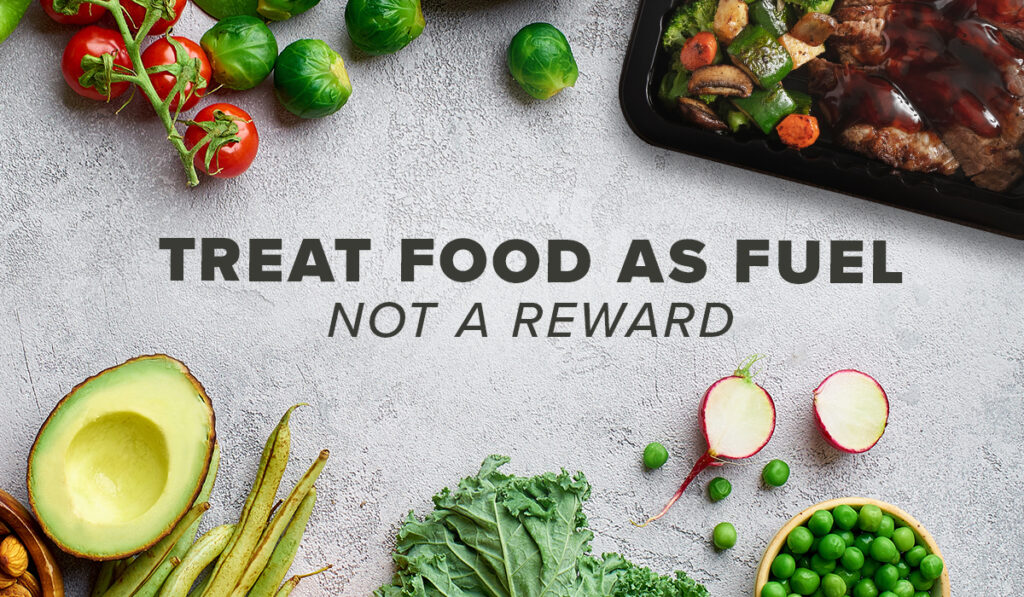
Food as Fuel Connects How We Eat to How We Feel.
The scale isn’t the only way to measure if your approach to nutrition is “working.” And most nutritionists and dietitians argue it’s not even the best way. Thinking of food as fuel gives you a more tangible measurements, like:
Do your meals provide you lasting energy to get through the day?
Do you feel full and satisfied after you eat?
Do you perform well during your workouts and recover adequately to do it again?
If the answer to these questions is yes, then you’re on the right track. And if not, then it’s time to take a hard look at the quality of the fuel in your tank.
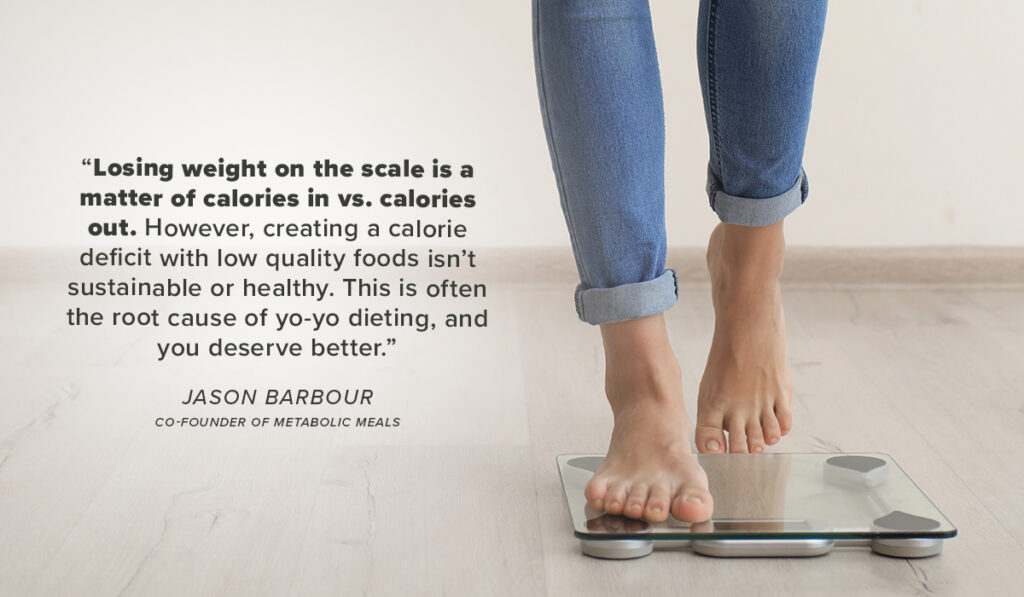
Food as Fuel Means Simplicity & Balance
What’s the difference between eating for sports performance, eating for weight loss, or eating for maintenance?
It’s common to think that someone looking to lose weight doesn’t get to eat many (or any) carbs. Or that being an athlete in training means you “need” or have “earned” a lot of sugar-rich snacks. But from a “food as fuel” perspective, the foundation never changes:
- Adequate but not excessive calories
- Sufficient healthy carbs and fiber for lasting energy
- .5-1g per pound daily of high-quality protein
- Fats from high-quality, natural sources for overall & hormonal health
- Nutrient-dense fruit vegetables for micronutrients
Of course your personal portion sizes should reflect your lifestyle, body, and goals. But the difference between your diet and another person’s is probably less than you think. And it’s a difference of quantity – not of quality.
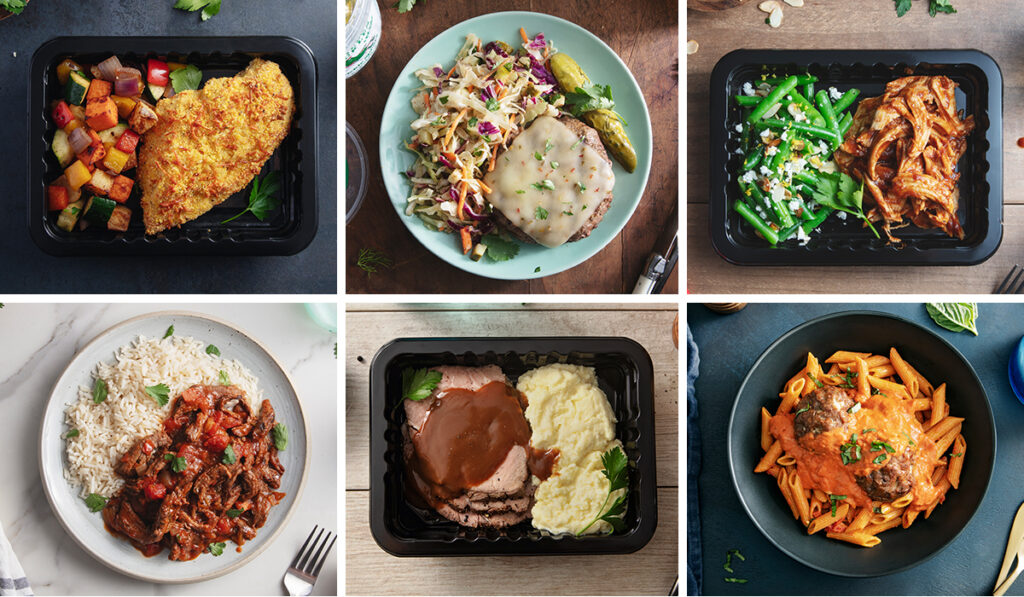
Food as Fuel Means Prioritizing Nutrient Density & Digestibility
Adopting a “food as fuel” approach doesn’t have to mean spending hours trying to dial in the tiny details of your diet. On the contrary, it means focusing on simple, clean foods that are known to be:
- Easy to digest for the majority of people
- Free of common allergens
- Nutrient-dense per calorie
- Easy to portion out and scale up or down
Luckily for you, these foods aren’t hard to find. They include:

1. High-Quality Animal Proteins: Grass-Fed, Grass-Finished Meats & Wild-Caught Seafoods
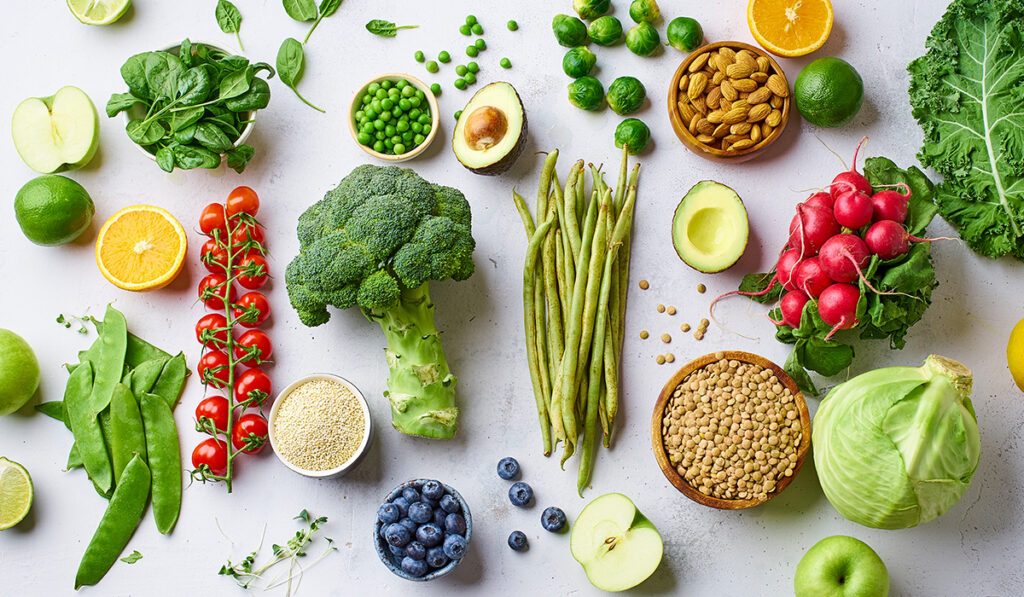
2. Fruit & Vegetables
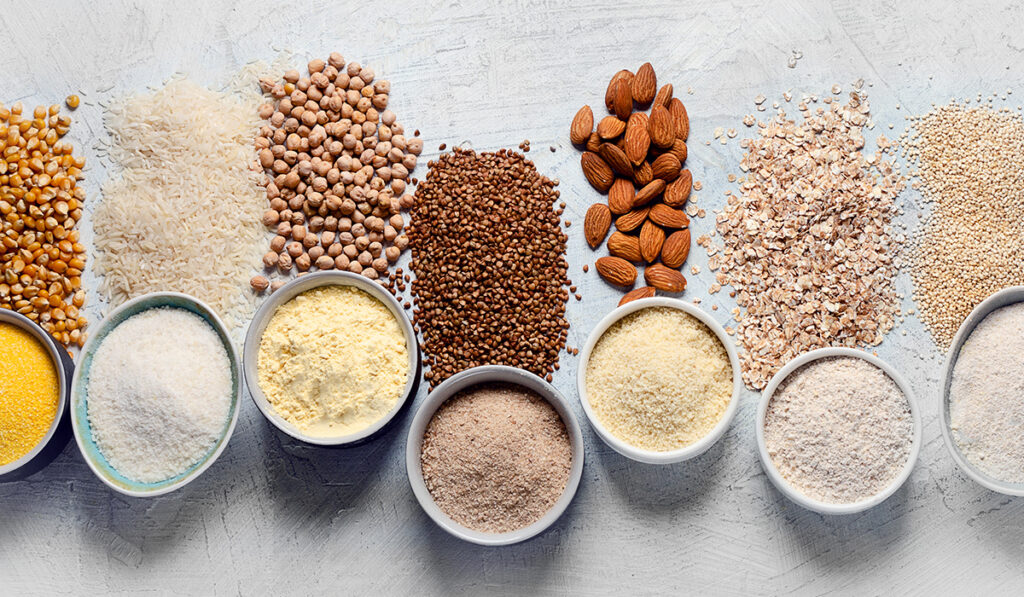
3. Rice & Other Gluten-Free Whole Grains

4. Healthy Non-Seed Oils & Fats
Having a fuel-based mindset can also help you decide what to leave off the menu. For instance, Metabolic Meals also uses the “food as fuel” approach to inform what we don’t put in our prepared meals.
Our “never list” includes:
- Soy
- Gluten-containing grains: Wheat, rye, barley, malt, and triticale
- Low-grade proteins and processed meats
- Refined sugars
- Processed vegetable oils: Canola, cottonseed, soybean, safflower
Why don’t these make the cut? Sure, many people experience digestive and other problems that get in the way of their use as fuel. But even for those who don’t have problems, they’re still cheap and inefficient sources of nutrition. Sure, they’re “food.” But as fuel, there are better choices.
And when it comes to artificial flavors and dyes or MSG, they’re not food. They’re not fuel. All they are is “stuff.”

Food as Fuel: Where to Start
Most of us can identify a certain meal that, more often than not, feels like a problem we struggle to solve.
Yours might be a breakfast that often ends up being a sugar bomb. A lunch that leaves you yawning an hour later. A snack you don’t realize you need until you’re already starving. Or maybe it’s a dinner that always seems to leave you hungry.
Everyone’s problem meal is different and unique to them – and it’s why Metabolic Meals offers a rotating menu of meals and snacks to match every situation.
You don’t have to change every meal in your day to make a dramatic change in the way you feel. Start with your problem meal, and swap it out for higher-quality fuel at the time when you need it most. You might be amazed at what happens.
About The Author: Nick Collias
Nick Collias is a writer and editor with over a decade of experience working in the health and fitness industry. From 2016 to 2021, he was the host of the Bodybuilding.com Podcast, interviewing elite athletes and training thought-leaders on a wide range of exercise, nutrition and lifestyle topics. Additionally, he has worked for the last 20 years as a long-form print and online journalist, as well as a book author, ghostwriter, and editor.

